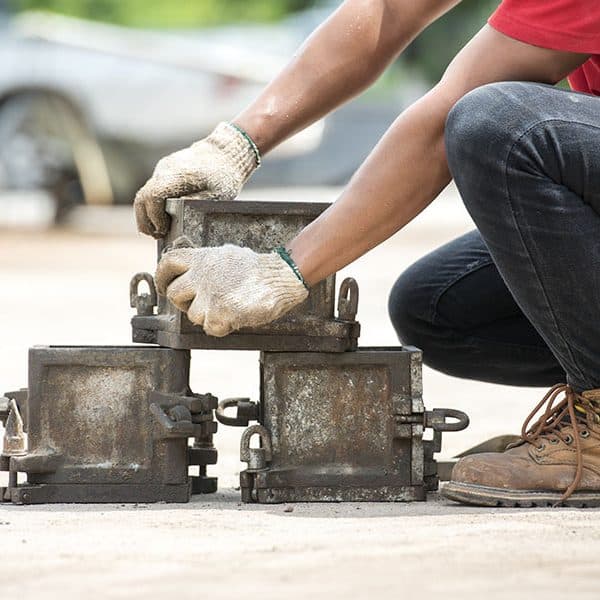Concrete Testing in Hinkley
What is concrete testing?
An opportunity to inspect, measure and analyse concrete supplies to investigate their structural integrity and quality is done through the process of concrete testing.
Carried out throughout the construction of a building at different stages such as the initial mixing of materials to the final placement of the concrete, it requires a dedicated concrete testing service to ensure the highest quality of results that are accurate and will be completed efficiently and effectively.
Rock Solid Concrete is a construction company with credentials that span over decades in the industry with a reputation for delivering great outcomes to assist your project.
Call us now on – 02476 361 448

Benefits of Concrete Testing
An important part of any construction, concrete testing brings several advantages to enable the success of your project.
Assure Quality – Concrete Testing determines that the concrete mix meets a specific standard to ensure its durability, quality and strength for a reliable and long-lasting structure
Strength Verification – Testing also determines the compressive strength of concrete which is essential for assessing its load-bearing capacity
Optimising Mix Design – Allowing you to fine-tune the concrete mix so that you achieve an optimal balance of materials for durability, workability and strength
Compliance – It ensures that you are compliant with industry standards and regulations by meeting their requirements
Cost Saving – By carrying out concrete testing in advance and assessing its quality you’re reducing the potential of future failures, repairs and replacements which could be costly in the future.
The Concrete Testing Process
A dedicated series of events that take place during your construction project there are a number of steps and processes to take for the best outcomes possible. Starting with taking samples from various batches in the pouring process this is done to the relevant standards before preparing the samples with dedicated concrete cube test moulds to determine their properties. Then it’s onto the compression test, slump test, density test, flexural strength test and curing and conditioning which assesses many factors to look at the overall quality and durability. Finally, the analysis and reporting stages are where results are delivered to determine the standards and if any improvements need to be made during interpretation carried out by qualified professionals.
Concrete Testing FAQs
Why is concrete testing important?
To ensure the quality, durability and strength of the concrete used in your construction project this must be carried out to meet health and safety standards, and regulations as well as identify structural integrity.
When should a concrete test be carried out?
It’s advised that testing is done during production at the batch plant, transportation, placement and curing. The final test will be after the concrete has hardened to look at strength and durability.
What affects concrete strength?
Elements such as water-to-cement ratios, mix design, aggregates used, curing condition and duration as well as environmental factors during placement will affect how strong the concrete is.
Can concrete be tested on-site?
It can indeed. Slump tests or field-cured specimens can be done on the construction site, but more detailed tests are often completed in a dedicated laboratory.
What will happen if concrete fails a test?
If the results show that the concrete has failed the test then this means that the quality of the mix design isn’t up to standard. Therefore actions such as adjusting the mix, construction practice and curing methods will help to make improvements.




